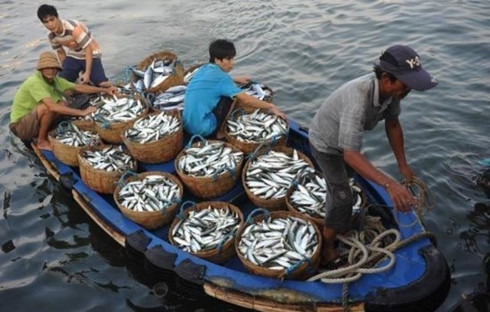|
Cooperation in
A Blueprint for Fisheries Management
and Environmental Cooperation in the East Sea, a tool to improve management
and maintain stability in the East Sea, was introduced by the US’s Center for
Strategic and International Studies last year.

This
is the first product of the CSIS Expert Working Group on the
The
Blueprint, developed by the Asia Maritime Transparency Initiative, aims to
set up a group of experts from around the region who are familiar with
environmental laws and policies to develop models of conduct for fisheries
management and environmental protection in the
States
responsible for cooperation in marine environmental protection
According
to CSIS, the
Gregory
Poling, Director of the Maritime Transparency Initiative of the CSIS, said
that unlike hydrocarbons, for which exploitation rights are based only upon a
state’s entitlement to the continental shelf, the obligation to jointly
steward living marine resources makes fisheries management and environmental
protection “low hanging fruit” for cooperation in the East Sea.
With
political will, it is entirely possible for nations bordering the
Mr.
Poling said, "In fact we are clear that for this work all claimants will
have to agree that nothing in the framework will amount to a compromise on
the eventual sovereignty claim but the UN Convention on the Law of the Sea is
filled with requirements for states to cooperate in fisheries management and
environmental protection."
Article
123 of the United Nations Convention on the Law of the Sea (UNCLOS) mandates
that states bordering semi-enclosed seas like the
This
is reflective of the deeply interconnected ecologies of semi-enclosed seas,
in which currents cycle marine life (and pollution) through the region
without regard for national jurisdiction. Moreover, Article 192 of UNCLOS
provides a general obligation for states to “protect and preserve the marine
environment.”
Protect
marine environment through multilateral cooperation
The
international legal obligation to cooperate on fisheries management and the
environment is matched by practical necessity. Communities all around the
Mr
Poling said, "In the case of outstanding maritime disputes, states have
responsibilities to find pragmatic solutions, mechanisms to work through
disputes. We have two options. We can either think of creative ways to manage
the resources of the ocean or we can spend the next 20 years arguing about sovereignty
disputes but the fish is all gonna die in the next 10 years. So it will be
lot easier to resole the disputes when there’s no fish left to worry about.
But I don’t think that what’s anybody want."
To
that end, the Blueprint for Fisheries Management and Environmental
Cooperation in the East Sea suggests claimants should agree to establish a
Fishery and Environmental Management Area in the East Sea; split enforcement
responsibilities between occupiers and flag states; agree not to use
subsidies to encourage fishing within the already overfished East Sea;
coordinate efforts to reintroduce giant clams and other threatened species
such as sea turtles to depopulated reefs in the East Sea; avoid activities
that damage the marine environment or alter the seabed; cooperate on marine
research, which is necessary to assess the health of the maritime environment
and effectively implement conservation efforts.
VOV5
|
Thứ Tư, 14 tháng 3, 2018
Đăng ký:
Đăng Nhận xét (Atom)
Không có nhận xét nào:
Đăng nhận xét